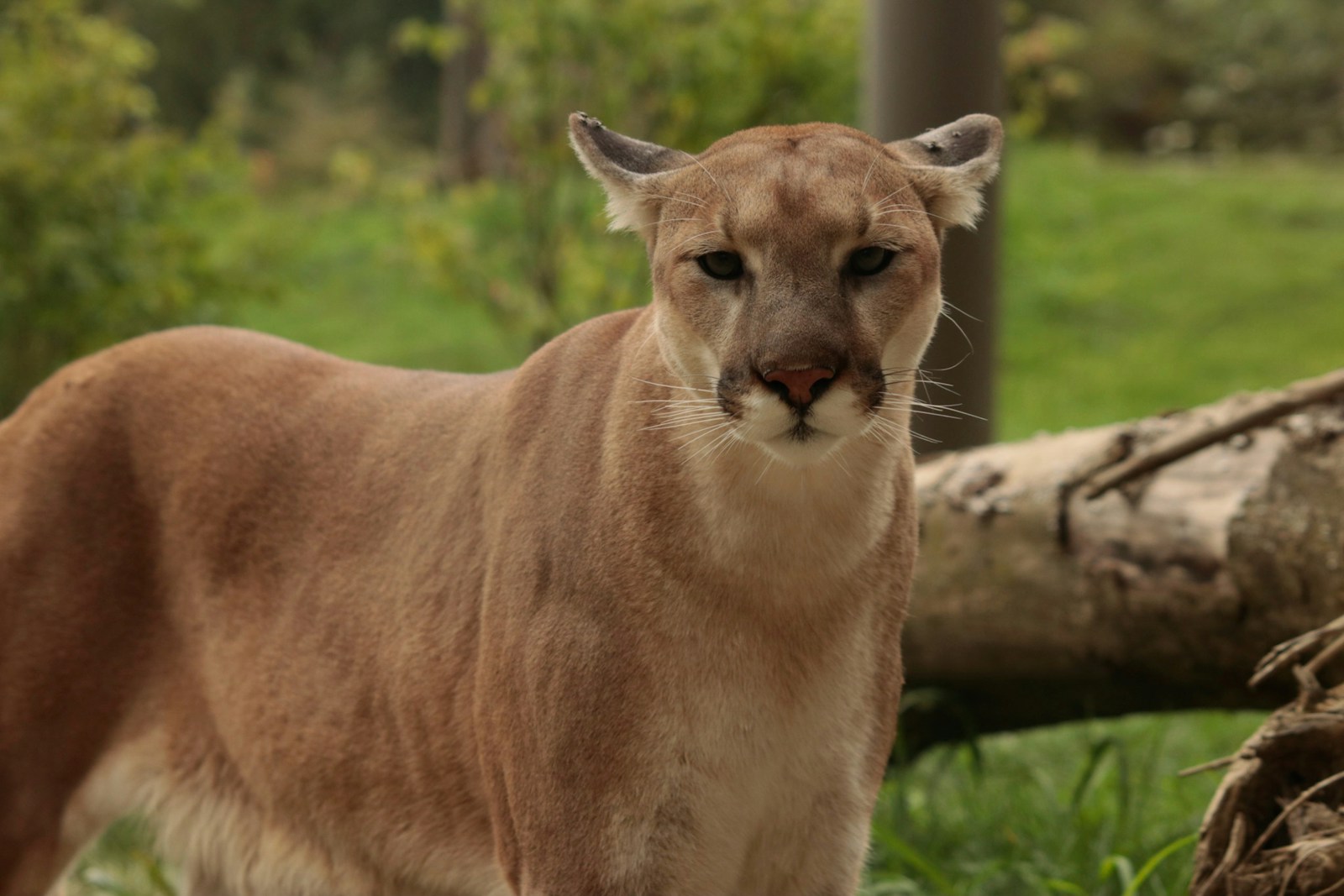I want to start this post with my perspective and experience living with predators in the Alberta foothills. Every year we have been here, we have seen the big three: grizzlies, cougars, and wolves. It can be amazing, scary, and eye-opening to realize how much wildlife there is in Alberta.
We have been very aware of wildlife and ensuring we are not doing things to encourage interaction and draw any wildlife near our home. We know people have had issues; we are happy that we have not.
An essential part of living in Bighorn, Mountain View, Clearwater or Rockyview is remembering you have native neighbours and should plan accordingly.
The Alberta foothills are a place of rugged beauty, where the wind carries the scent of pine and the mountains keep their secrets well. Among those secrets lurks a creature both feared and admired, a silent shadow in the trees—the cougar. Known by many names—mountain lion, puma, catamount, or just “that giant cat that gave me a heart attack while I was chopping wood”—the cougar is Alberta’s top predator, and frankly, it's earned the title.
The Stealthy Kings (and Queens) of the Wild
Cougars are the original ninjas of the animal kingdom. Unlike their noisy, pack-hunting wolf counterparts, these big cats prefer the lone wolf (er… lone cougar?) lifestyle. They can weigh anywhere from 50 to 100 kg (that’s about the size of a Great Dane with murder mittens) and are capable of leaping 40 feet in a single bound—basically, nature’s version of a superhero, minus the cape.
You won’t hear them coming. You won’t see them coming. And if you do, it’s probably already decided whether you’re worth the effort (good news: you’re usually not). But if you live in rural Alberta, you live with cougars, whether you know it or not. They’re out there, silently patrolling the land, keeping the deer population in check, and making sure the local rabbit gangs don’t get too confident.
What’s on the Menu? (Hint: It’s Not You)
Let’s get one thing straight: you are not cougar food. These cats are picky eaters, and their favorite dish is deer—white-tailed or mule, preferably aged to perfection. They’ll also take down elk, moose calves, bighorn sheep, and even porcupines (a bold and somewhat regrettable choice).
Cougars hunt like pros, using patience, stealth, and a well-timed pounce. Unlike wolves, who prefer a chaotic chase, cougars take the silent but deadly approach. They creep through the underbrush, wait for just the right moment, and then launch themselves with the kind of athleticism that would put Olympic gymnasts to shame.
Cougar Love: A Complicated Affair
Cougars are romantic loners, only coming together for some brief but enthusiastic dating before parting ways. After about three months, a female cougar will give birth to a litter of 2-4 kittens. These little fluffballs are born with spots and blue eyes, making them look less like the future apex predators they are and more like oversized house cats with attitude.
She will raise her babies on her own, teaching them all the essentials—how to hunt, how to stalk, and most importantly, how to avoid humans (because, frankly, we tend to overreact when we see them). After about two years, the young cougars strike out on their own, looking for a territory free of older, grumpier males who don’t like competition.
Living with Cougars:
If you live in the foothills, you’re living in cougar country. That means a few things:
Keep your pets safe – Your dog may think it’s a tough guy, but against a cougar, it’s a snack with a bad attitude. Keep pets indoors at night or in secure kennels.
Don’t let deer hang around – If you’re feeding deer, you might as well put up a sign that says, “Cougars, please apply here.”
Store garbage and livestock feed properly – If rodents and scavengers show up, bigger predators won’t be far behind.
Make noise when walking at dawn or dusk – If you’re in dense bush, talking, singing, or even carrying a bear bell can let cougars know you’re there (because surprising a cougar is not how you want to start your day).
If you do see a cougar, stay calm, stand your ground, make yourself look big, and NEVER run (unless you want to trigger their chase instinct, which, spoiler alert, you will not win).
The Good, the Bad, and the Absolutely Essential
Despite their reputation, cougars are critical to Alberta’s ecosystem. They keep deer and elk populations balanced, preventing overgrazing and protecting forests. They also eliminate sick and weak animals, reducing the spread of disease. Plus, their leftovers provide food for a whole host of scavengers, from coyotes and bears to eagles and magpies.
In essence, cougars are nature’s quality control—a sleek, efficient predator ensuring the foothills remain wild and thriving.
Final Thoughts: The Beauty of Living with Big Cats
Cougars are not the villains of the foothills; they are its silent guardians. Yes, they’re powerful and deserve respect, but they’re also incredibly shy, preferring to avoid human contact whenever possible. If you live in rural Alberta, just remember—you’re sharing the land with one of the most impressive predators in North America.
And if you ever get that eerie feeling that you’re being watched while walking through the woods?
Well… you probably are, and it might not be just a squirrel.


